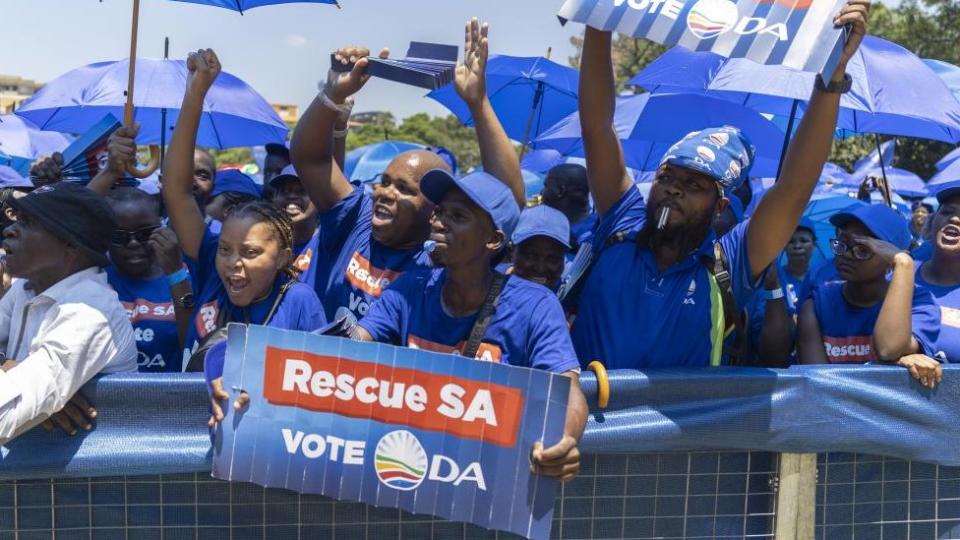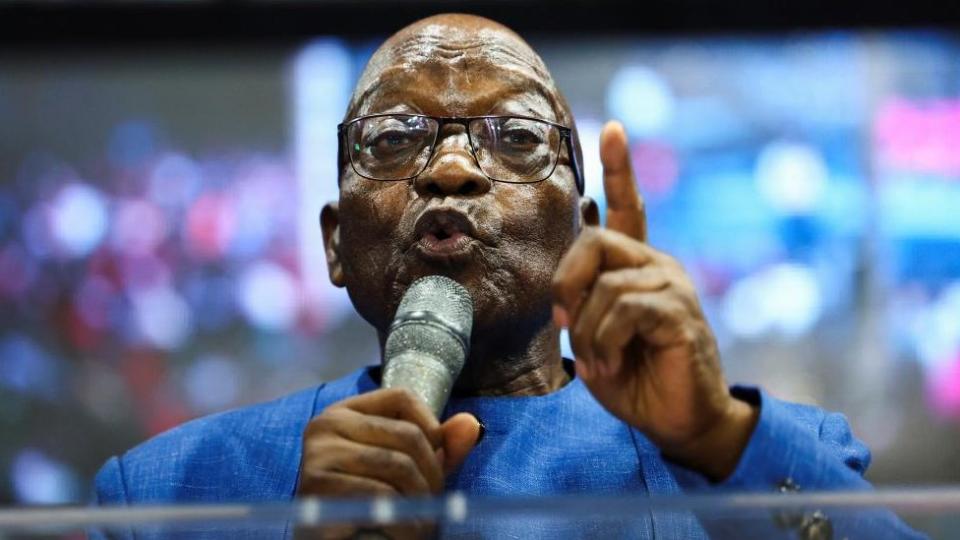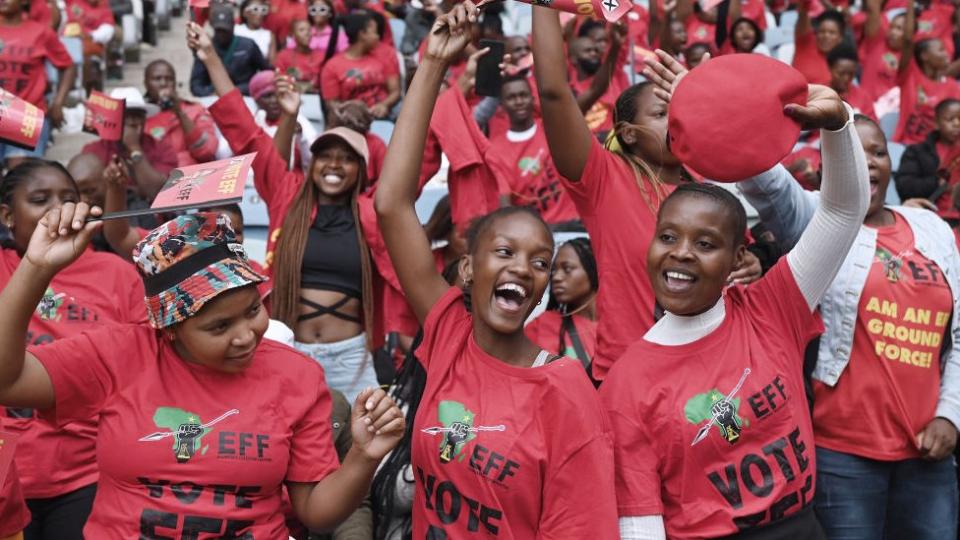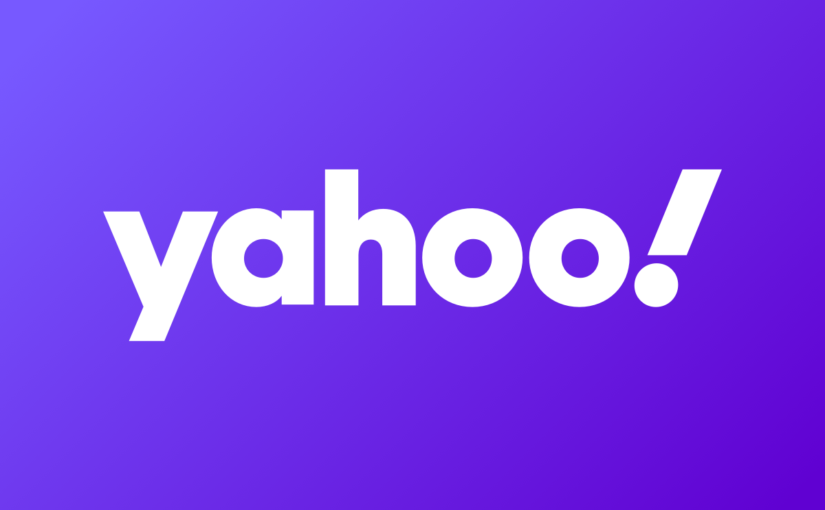(Bloomberg) — South Africa’s main opposition party will resist forming a coalition with the ruling African National Congress in order to govern the country should it need to.
Most Read from Bloomberg
“We don’t want to be in government with the ANC,” John Steenhuisen, the Democratic Alliance’s leader, said Thursday in an interview with Bloomberg Television. “I don’t think we’re going to solve the country’s problems by having the same people who are responsible for the economic crisis, the social crisis, and the infrastructure crisis sitting around the table.”
South Africa is on the cusp of an era of national coalition politics after elections scheduled for May 29. Opinion polls suggest the ANC will lose its overall majority for the first time since it came to power at the end of apartheid 30 years ago.
Steenhuisen, 48, has spearheaded the formation of a bloc of 11 opposition parties that aims to form a coalition government after the vote. Members of the Multi Party Charter have ruled out working with the ANC or the populist Economic Freedom Fighters, currently the third-biggest group, and polls show they’ll collectively struggle to obtain even 40% support. A survey by the Social Research Foundation indicates that an ANC-DA tie-up would be the one favored by most South Africans.
The DA, which espouses market-friendly policies, currently controls the Western Cape — the only province not run by the ANC — and won 21% of the vote in the last national election in 2019. It has also wrested control of several major towns in municipal elections by forming alliances with other parties, but some of those coalitions have proved unstable, with power changing hands several times and some services griding to a halt.
Steenhuisen called new “popcorn” parties that split the opposition vote “the biggest threat” to reducing the ANC’s majority.
“That’s why I’m saying in this election, vote for the DA — first prize. But if you’re not going to vote for the DA, vote for the Multi Party Charter parties.”
The DA head said former President Jacob Zuma’s uMkhonto weSizwe Party differs from other new ones because it had a leader with significant name recognition and that it has already made inroads in by-elections.
Read more: South Africa’s ANC Dismisses Rival Zuma Party as a Nuisance
“They’re devouring the ANC and what does that do?,” Steenhuisen said. “It helps lower the ANC’s majority and give the Multi Party Charter an even better chance of being able to get into government in places like KwaZulu-Natal, Gauteng, and nationally.”
A survey released by the SRF this month shows support for the DA is slipping in the Western Cape, and that it may be forced into a coalition in the province, though it’s likely to remain by far the biggest party in the region.
Read More: South Africa’s DA May Lose Majority in Western Cape, SRF Says
The DA faced internal turmoil when Mmusi Maimane, its first Black leader, exited in 2019 and a number of its other senior Black members followed suit, with some of them taking issue with the DA’s policy on race. While the municipalities it controls are regarded as being among the country’s better-run, its top leadership is predominantly White and it has struggled to increase support among the Black majority.
Asked whether South Africans would be hesitant to vote for a party in which a majority of parliamentarians are White, Steenhuisen said citizens want politicians who can address service-provision problems and lift the poor out of poverty.
“People in this election are not looking for the color of the cat — they’re looking at who’s going to catch the mouse,” he said. “You don’t need to be a poor Black South African to get up every morning as I do and fight for a better life for those people.”
Among the policy proposals outlined in the DA’s manifesto are the scrapping of race-based economic redress — a cornerstone of ANC policy — and converting a temporary monthly stipend that was introduced to cushion the unemployed against the impact of the coronavirus pandemic into a permanent job seekers grant at an additional cost of 39.6 billion rand ($1.95 billion).
It also favors breaking the monopoly of state power utility Eskom Holdings SOC Ltd., whose failure to adequately maintain its plants and invest in new generation capacity has led to years of rolling blackouts. The DA would instead increase investment in electricity transmission.
–With assistance from Gordon Bell.
(Updates with comment from Steenhuisen in sixth paragraph.)
Most Read from Bloomberg Businessweek
©2024 Bloomberg L.P.



